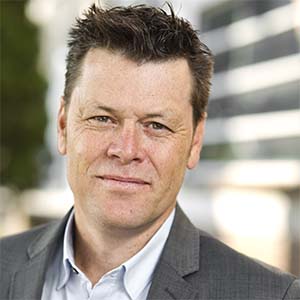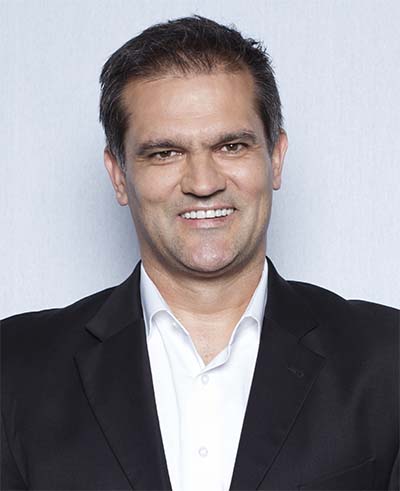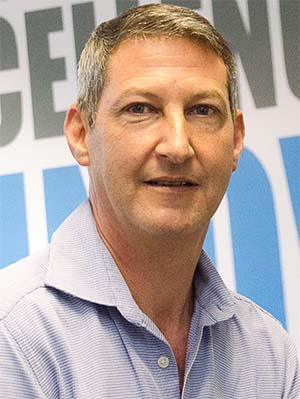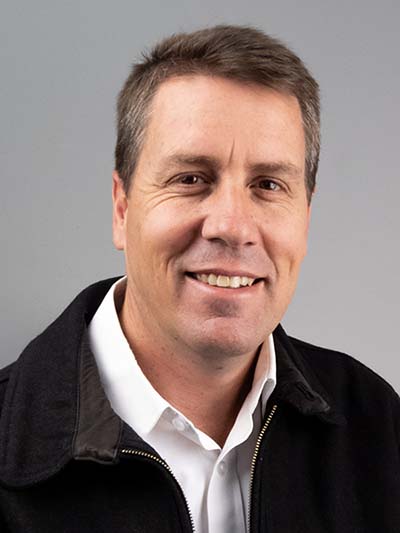Stalwarts in the local IT distribution channel are more than used to the ‘boom and bust’ cycles that have dictated the market for literally decades – The Chunderer, wizened through his 40-plus years exposure to distribution has regularly waxed lyrical on the subject for many years.
So, after a two-year mini-boom in PC and consumer products due to Covid-19 and global lockdowns which enabled then-deemed-necessary scenarios such as work-from-home (WFH), home schooling, and, generally, home entertainment, many of the wise heads in the channel have been fully aware of – and, indeed, expecting – yet another ‘bust’ cycle.
But while many anticipated a slowdown in consumer spending, few could have predicted the events – and the subsequent ripple effects – that have rocked the nation. Who, for example, could have predicted that the clandestine docking of a Russian cargo ship in Simonstown could have such a devastating affect on the rand exchange rate? That load shedding would ever escalate to the record levels it has in the last six months? That soaring inflation and regular SARB rate increases would mean the cost-of-living crisis would reach the proportions it has?
And that’s just three of the main disturbing factors South Africans have been faced with. We won’t even delve into the more ‘traditional’ problems like Transnet’s so-called transport infrastructure; the criminal torching of vital road transport on major arteries; and, as yet, an unexplained explosion devastating part of Johannesburg’s CBD … And we’re not even going to mention the ‘normal’ problems everyone is faced with when it comes to crime and corruption.
Anyway …
Amid all the above devastation, the local IT distribution channel has carried on with what it does best: Supplying the right product, at the right price, and at the right time in the right place. As it always has done. Everyone will admit that the first half of 2023 has been tough, but there have been highlights (despite no lights!) and many continue to see a glimmer at the end of the tunnel.
As we’ve written through the years, the South African channel has always been resilient … taking the rough with the smooth … persevering through the peaks and the troughs of both local and international markets. And this perseverance is which will undoubtedly see it through the turbulent times we’re currently experiencing.
Mark Davison reports
Everyone in their right mind knew that the boom brought on by the Covid lockdowns and their subsequent effects on the way consumers worked, shopped, and entertained themselves would eventually come to an end as the market reached saturation point and improvements in technology meant that refresh rates don’t necessarily happen as frequently as they used to.
Many in the distribution channel foresaw this months ago and, while they accepted that there was bound to be a decline in consumer PC spend and therefore retail spend, tempered this with the knowledge that supply chain blockages in the enterprise space were now becoming unclogged. Many a local project was put on hold in the past two years due to the unavailability of infrastructure product, so now that this was becoming more available, pipelines would start paying off. A case of swings and roundabouts, if you will.
Last year, South Africa also endured its worse year of load shedding since the phrase was coined. Or so we thought. Almost all the traditional distributors in local IT have been supplying alternative power solutions to the channel for years. Some of us were writing about UPS systems back in the 1980s. But load shedding brought a new perspective to this vertical and, undoubtedly spurred on by the late David Kan’s “puzzling” decision to bring in container loads of batteries and inverters about three years ago (and see them disappear as quickly as they arrived on the Mustek premises), distributors took a more studied approach to alternative power.
Solar panels … inverters … batteries. At the moment, these are the new PCs, laptops and tablets of the local IT industry as, in the first six months of this year, load shedding outage time surpassed the whole of that record 2023. Distributors that focused on this area of business have not only managed to weather the storm of the current downturn in PC sales some are, in fact, willing to admit that alternative power/green energy solutions make up big double-digit percentages of their present business.
Again … a case of swings and roundabouts. But, again, the prominence of this “new” vertical market just proves the resiliency and flexibility inherent in the channel. And while the first half of the year may have been a bumpy ride, there is little doubt that the country’s distributors and resellers will once again weather any storm that is thrown at them during the remainder of the year.

Craig Brunsden, CEO of Axiz.
“The first six months of 2023 have proved to be a very challenging time,” says Craig Brunsden, CEO of Axiz. “More than usual, actually, considering that the rand/dollar exchange rate has been extremely volatile and that the PC market has been in severe oversupply while end customer demand has been rapidly declining. This has made life very challenging for partners and retailers alike.
“Having said that, however, the availability of products and lead times of old backlog with enterprise hardware vendors has improved by about 50% and this has helped unlock some projects that were stuck in limbo for months,” Brunsden continues. “The general demand from end customers has been surprisingly strong given the weakness in the economy, the doom and gloom around load shedding and, generally, around South Africa as a whole.
“Considering all this, I think parts of the channel have done very well – distribution included,” he says.
While Brunsden feels that there won’t be much easing of pressure on the channel in the coming months, he is optimistic about the longer-term future.
“I think the challenges I’ve mentioned will remain in place for some time to come,” he says. “The rand at its current levels is a real demand killer, and the continued uncertainty around certain factors in the country does not drive investment.
“But I’m still confident that while PC demand is depressed, the oversupply problem will ease as distributors get on top of the procurement process and vendors recognise some of the issues the market faces,” he says. “If load shedding eases in the coming months and the rand strengthens, then I think the outlook for the next 12 to 18 months is extremely positive.
“IT demand is surprisingly resilient in southern Africa,” he says.
Brunsden says that Axiz will not adopt any other specific strategies to counter the present market conditions, but will stick to its core principles.
“Our tried and tested focus on the basics of distribution is seldom a mistake,” he says. “And, of course, common sense, a huge dose of patriotism, grit, and an appetite to place some big bets with trusted people.
“We wouldn’t be here if there wasn’t opportunity in all this chaos,” he says. “At the end the day – more specifically, the quarter – we have to remember we are here to sell technology that solves problems and makes people’s lives more efficient. We’re not here just to close a deal.
“It’s not all about that quarter-end metric and someone’s bonus,” Brunsden adds. “Let’s be real, be professional, and enjoy the journey.”

Neels Coetzee, MD of Mustek.
Neels Coetzee, MD of Mustek, concurs with Brunsden on the challenges currently facing the channel. He, too, is confident that the major distributors will weather the storm and emerge stronger.
He is, however, more concerned about the fate of resellers in the coming months and has some sage advice for them.
“Remaining relevant and keeping the lights on is vital in this strained economy,” Coetzee says. “Resellers need to focus on their unique service offerings as a differentiator between themselves and their competitors more than ever.
“Today, SMBs need managed service too. Create your own unique offering, price it right so that a mutually beneficial relationship grows, and grow your business based on this,” he continues. “Resellers need to diversify and build new revenue streams. We have long advocated that the box-drop model is not viable – and that truth has become more self-evident now than ever before.”
Coetzee says that there are always opportunities in the channel, however bleak the future may look.
“Today’s buzzword, for example, is cybersecurity and resellers need to understand that it is not all that daunting to be in that world,” he explains. “The fundamentals of security are basic – patch, update, and backup are something that the channel knows and has experience in. Resellers need to make sure that basic IT security hygiene is in place at their customers and then take the journey with them from there.”
As always in an economic squeeze, cash flow and keeping an eye on every cent is of vital importance, says Coetzee.
“The pressure on resellers’ bottom line is substantial,” he says. “Resellers need to be looking at tools and services that they can offer that don’t require a ‘man in van’ scenario. By this I mean: how many services can you offer remotely – not needing to be at the customer’s premises – and bill for this. It is important that resellers ensure that they remain to be seen as the IT department for SMBs who would be without one if it was not for the channel.
“Staying with this theme, it is vital that costs are controlled proactively,” Coetzee continues. “Inflation, interest rate hikes, and volatile exchange rates are key factors and on an upward spiral, so it is vital that businesses manage and shorten their working capital cycles more than ever.
“Credit insurers will tighten up and cause a lot more pain to the channel, so spend needs to be managed wisely.”
Coetzee says that resellers should also be targeting new areas of business – creating verticals where they identify an opportunity.
“Everyone in South Africa knows that infrastructure is a challenge, but it is not just IT infrastructure,” he says. “As we’ve witnessed, alternative power has turned into a massive opportunity for many in the channel and the next ‘big thing’ could very well be water infrastructure. Spending time to find your niche in a particular category is key.”

Craig Nowitz, CEO of Syntech.
Craig Nowitz, CEO of Syntech, says that of all the uncertainty in the market, load shedding has arguably been the biggest curse – and blessing – on the channel.
“The first five months of the year were fantastic if you were selling load shedding devices and solutions, but that business went very quiet in June when load shedding levels decreased,” Nowitz says. “Now that we are back to Stage 6 levels, however, this business should pick up again. B2B business has been consistent during this period, but B2C business has been pretty quiet as consumers are under a lot of pressure with higher interest rates and the consequences of load shedding.
“The absence of consumer confidence and lower spend on projects due to uncertainty in the market are the biggest challenges facing the channel at present,” Nowitz continues. “And we anticipate future market volatility as politically motivated actions take place in the lead up to the elections next year.”
As with most channel veterans, Nowitz is cautiously optimistic about the remainder of 2023, but hints that flexibility in taking advantage of any new opportunities – and there are always some that emerge, even in the darkest of days – is going to be vital for any channel player.
“Based on the return of Stage 6 load shedding and remaining consistent, the market is going to be under a lot of pressure,” he says. “The uncertainty in the market will probably impact sales cycles and delay procurement procedures, but when deals close, consumers will expect fast delivery and prioritise the suppliers that carry stock.
“Syntech is always innovating and finding new solutions to solve problems,” he adds. “Our innovative approach and introduction of new solutions gives us the opportunity to grow in different market segments.”
And his best advice to the channel going forward?
“Tighten your belts – it’s going to be a wait-and-see scenario,” he warns. “Be cautious and stay close to your customers so that you can act quickly on any opportunities. And focus on load shedding solutions to counter business lost in other sectors of the market.”

Malcolm Stewart, GM of First Distribution.
Malcolm Stewart, GM of First Distribution, is in total agreement with his fellow executives on how the first six months of the year have spun out and has similar feelings on how the rest of the year could unfold – and what the channel should be doing in order to cope.
“Following from the growth in the market last year, our overall experience of the channel market so far this year has been that it remains strong,” Stewart says. “However, it will be tough for many channel partners to show growth in 2023.
“This year has seen worse than normal challenges with the fluctuating exchange rate and the energy crisis reaching new levels – spending is being delayed and/or shifted to other priorities,” he says. “Following the last year or two where digital transformation and work from home were major themes, along with the supply chain shortages impacting stock availability, we are seeing a return to ‘normalised’ trading this year.
“There has been a slowdown in the run-rate type business when compared with recent years and large project business is recovering.”
It seems too, that this ‘normalisation’ of the channel is seeing old ghosts return – margins, which have been extremely healthy during the boom period, are now coming under increasing pressure.
“We have definitely seen channel margins coming under pressure this year,” says Stewart. “The fluctuation in the rand/dollar exchange rate has contributed to this, making it difficult to maintain pricing.
Buying decisions are being moved out while end users scrutinise their purchases and weigh up options. This is pushing sales cycles out and business is taking longer to close.”
In looking to alleviate some of the pressure on its partners, Stewart says that First Distribution is adopting various different strategies and projects.
“We are driving a number of automation projects to continuously improve our efficiency and ability to service the channel,” he says. “Bundled solutions is another area we’re investigating – looking at vendors who have global alliances together and offering end-to-end solutions that the market is now demanding.
“A number of vendors have brought various flavours of “as a service” models to market, making it easier for customers to consume services. These models often ease the burden on capex expenses and we will be driving these initiatives through the channel.”
Again, Stewart is cautiously optimistic about the short- to medium-term prospects in the channel.
“We are optimistic for the balance of the year and feel that the activity levels in the channel are high which should result in continued momentum through the year,” he says. “Cloud adoption continues to be on the rise as end users and the channel mature in their understanding of what workloads are best to run in the cloud and get to grips with the cost versus benefit of cloud.”
Stewart also has some sage advice for reseller partners: “We often work with channel partners to look at how best to diversify their business. This does not mean a complete re-design, but rather looking for solutions that compliment what they do and would be a natural fit to their business strategy.
“If you are not there already, embrace the hybrid multi-cloud world and be in a position to provide your customer with the right advice and options,” Stewart adds. “Clichéd as it sounds, the market is there already. If you take a look at the options available from many hardware and software vendors, they have traditional on-premise or perpetual offerings, they have subscription offering, they have pay-as-you-use offerings, bring your own license offerings, fully hosted as-a-service offerings and more.
“These provide organisations with choices on how and where to run their business solutions to best fit their chosen architecture,” Stewart says.

Spencer Chen, CEO of Rectron.
Spencer Chen, CEO of Rectron, echoes the sentiments of his channel colleagues: “We have definitely seen a decline in the PC and components market and an increase in demand for power solutions and other business-enabling product lines. And, no matter what solution you sell, the volatile exchange rate has to be the biggest factor having impact on current business.
“We are working smarter than ever before,” Chen says. “Investment into new profitable business verticals like security and surveillance – particularly with our Point of Sale and DJI enterprise products – will continue and is starting to pay off.”
And as for the rest of the year?
“Traditional resellers fighting for small margins are going to suffer if they do not broaden their scope and offer value-added solutions to their customer base,” Chen says. “Diversify services and product offerings. We can assist channel partners with training and certifications for specialised products and solutions.”
The current State of the Nation may be in flux and, yes, it is impacting all aspects of everyone’s lives – including the channel’s. But 2023 won’t be the first year where the IT distribution channel has had to weather the fiercest of storms. And it won’t be the last. Many have been through the above scenarios before and not only survived, but thrived. And, given the cautious optimism of veteran executives, there’s no reason why they shouldn’t again.
